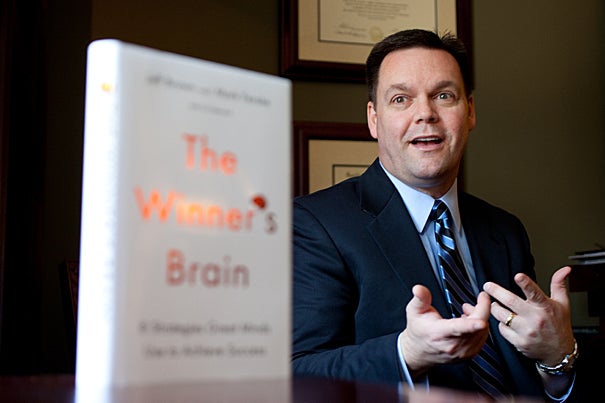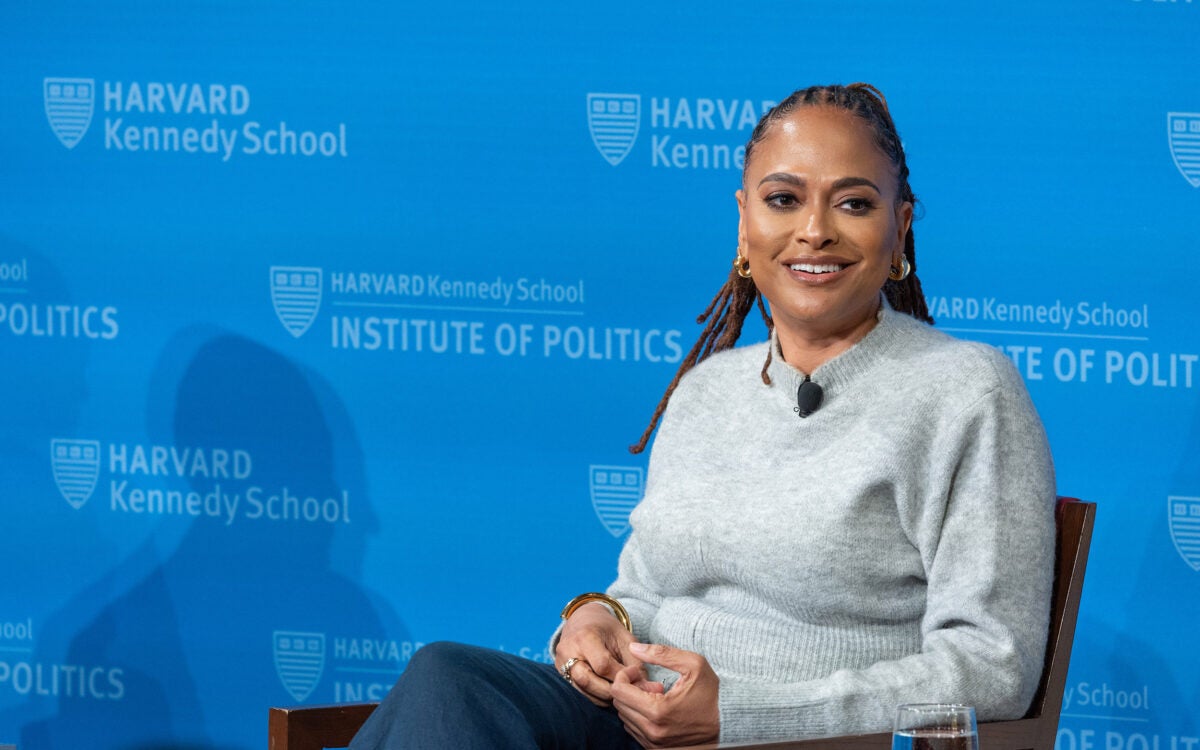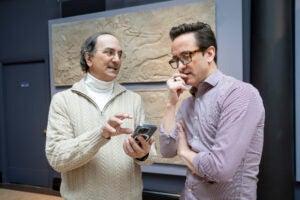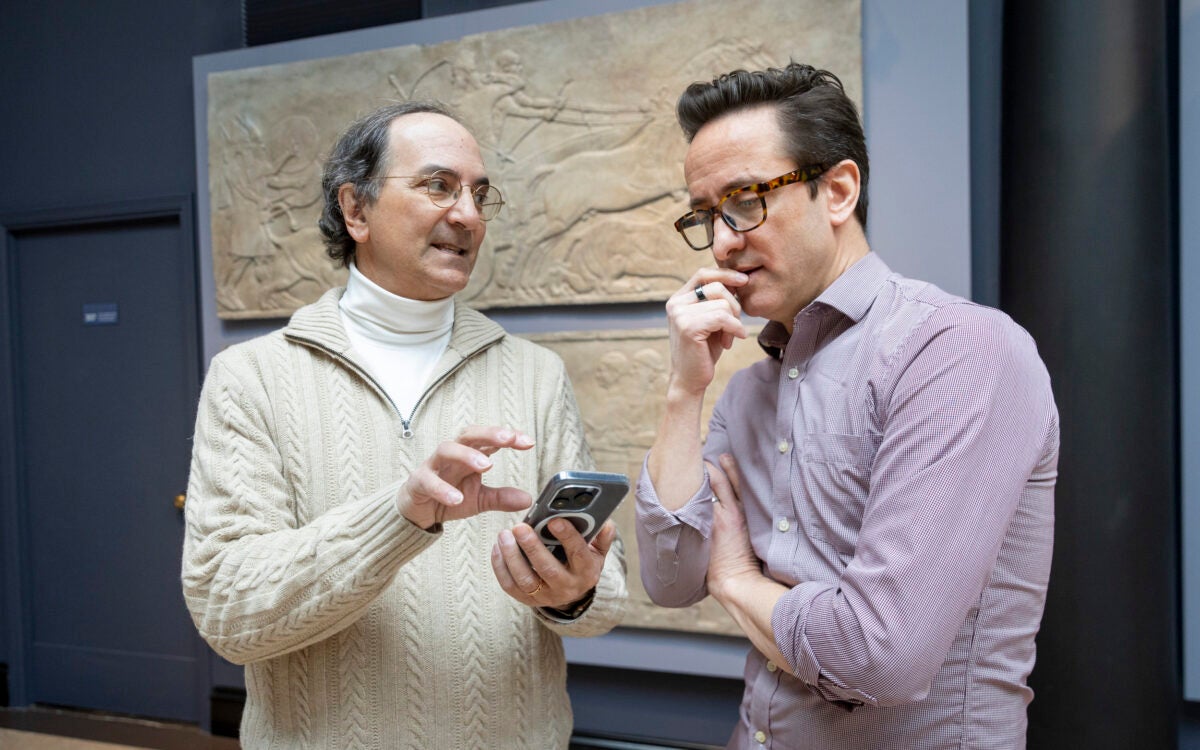
Rose Lincoln/Harvard Staff Photographer
Building a better brain
Author’s book maps how to use our minds better, and expand our abilities in the process
What does Whoopi Goldberg have to do with neuroscience?
A lot, says Jeff Brown, co-author with Mark Fenske of “The Winner’s Brain.” Goldberg, an Oscar-winning actress and now the frank and hilarious moderator of “The View,” is a model of resilience, according to Brown, an instructor of psychiatry at Harvard Medical School. She has weathered some of life’s hardest knocks, including growing up in a New York City housing project, three divorces, and her daughter’s teenage pregnancy, but has always bounced right back.
“When it comes to the brain, winning equals success,” said Brown. “And success can be obtained across many different aspects of life, from being able to evaluate what is important, recognizing valuable opportunities, to finding the motivation to achieve your goals. Each of us is geared with different preferences, desires, hopes, and drives. When it comes to deciding how we want to win — how to be successful — we’re in the driver’s seat.”
“The Winner’s Brain” combines cognitive neuroscience and fMRI scanning (“which gives us the best look we have so far at the brain in action”) with cognitive behavioral psychology that, said Brown, has long provided specific tools with marked results for making lasting behavioral and emotional changes. (fMRI stands for functional Magnetic Resonance Imaging.) With this dual understanding, Brown and Fenske navigate and identify the functions of a healthy, winning brain: memory, adaptability, emotions, self-awareness, motivation, and more.
“A New York City window washer and London cab drivers are examples of people we interfaced with to learn how they optimize the human brain,” said Brown. “In each case illustrated, we’ve identified credible fMRI research to help illuminate the stories and give firm foundation to the suggestions we make for readers.”
But along the way, the authors also interviewed some well-known winners such as actress Laura Linney, athlete Kerri Strug, and artist Andrew Wyeth.
“While we never actually made it to Kevin Bacon,” joked Brown, “in most cases, we gravitated toward an individual because of their expertise and what the research was guiding. B.B. King talked with us about current research with jazz musicians, and Phyllis Diller was glad to talk and laugh with us about risk.”
For those of us lagging in the brain department, there’s hope yet. The book features more than a dozen brain exercises (called “brainstorms”), but the biggest success factor appears to be self-awareness.
“We believe self-awareness is key to reaching your goals,” said Brown. “If you don’t have an accurate sense of self-awareness, then it’s much more likely that you’ll be incompetent at the tasks you undertake.”
Brown calls this “the double whammy of incompetence.”
“The first whammy occurs because the person is not particularly good at something — and the second whammy comes as a result of them not knowing that they are not very good at it,” he said. “Knowing our strengths and weaknesses is key for effectively using the skills we already possess and working to improve the skills we would like to possess.”




